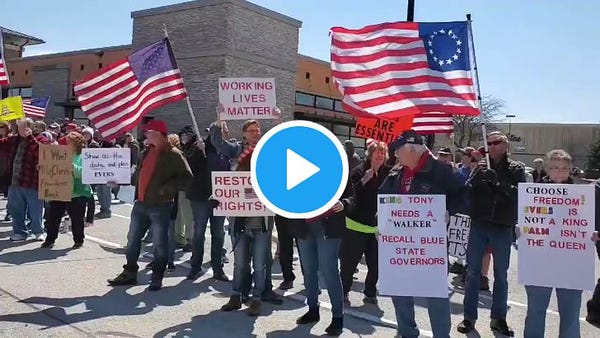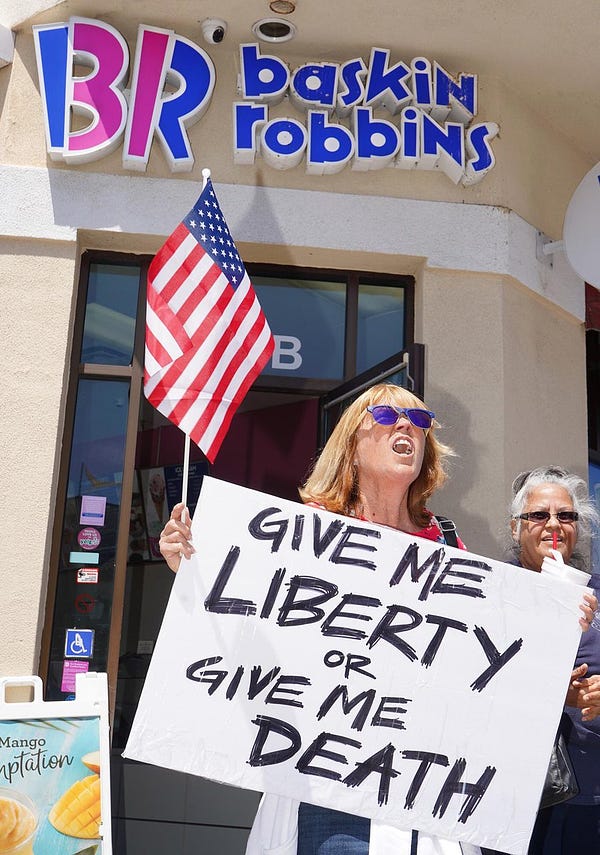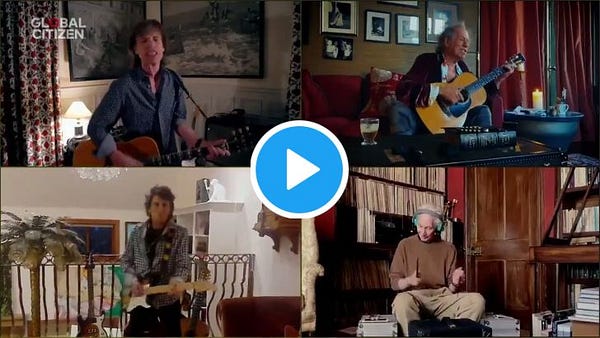Housekeeping:
Thank you to everyone who signed up for a paid subscription to the newsletter! Don’t forget: During this two-week trial, you get the Founding Member Rate — 50% off the regular cost.
Membership has its benefits: I’m pleased to invite you to a live online event, this Thursday, April 23 @ 7:30 pm ET: Front Row at the Trump Show: A Conversation with ABC News’ Jonathan Karl. Register here.
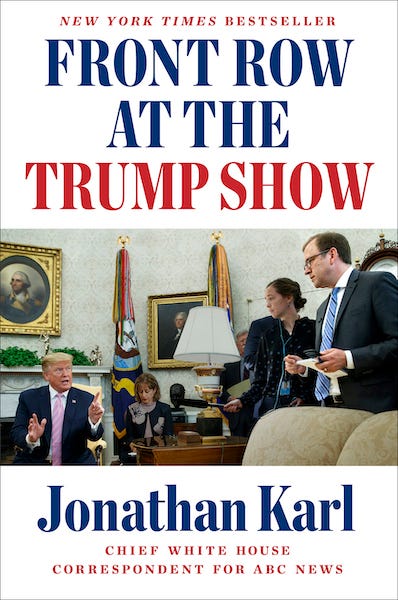
Now to today’s briefing…
The World
House Speaker Nancy Pelosi said Congress is “very close” to striking a bipartisan deal to replenish funds in the small-business loan program that ran out of money this week and that the Democratic caucus backs her approach. “We’re close. We have common ground,” Pelosi said in an interview with ABC’s “This Week.” “I think we’re very close to an agreement.”
House Republicans have scheduled an 8 p.m. conference call for Sunday to get an update from the their leaders on the status of negotiations.
“I think we’re very close to a deal today and I’m hopeful we can get that done,” U.S. Treasury Secretary Steve Mnuchin said in an interview with CNN (Bloomberg, Reuters)
More than a dozen U.S. researchers, physicians and public health experts, many of them from the Centers for Disease Control and Prevention, were working full time at the Geneva headquarters of the World Health Organization as the novel coronavirus emerged late last year and transmitted real-time information about its discovery and spread in China to the Trump administration, according to U.S. and international officials. Senior Trump-appointed health officials also consulted regularly at the highest levels with the WHO as the crisis unfolded, the officials said. (Washington Post)
Much of the $350 billion in the Small Business Administration's emergency coronavirus relief fund was effectively spoken for within the first minutes of launch, according to senior banking executives. "We didn't even get through the first five minutes of applications," a JPMorgan Chase senior banking executive said. The bank received over 60,000 applicants for the Paycheck Protection Program within those first five minutes. A senior Bank of America executive said that, on the first day alone, the bank received over 10,000 applications per hour.
“It was Hunger Games,” said one senior banking executive. Meanwhile, US business owners are frustrated. (NBC News, Financial Times)
New WSJ/NBC Poll: More Americans fear lifting the coronavirus restrictions too soon. Nearly 60% of respondents worry that lifting stay-at-home orders quickly will fuel the pandemic. (Wall Street Journal)
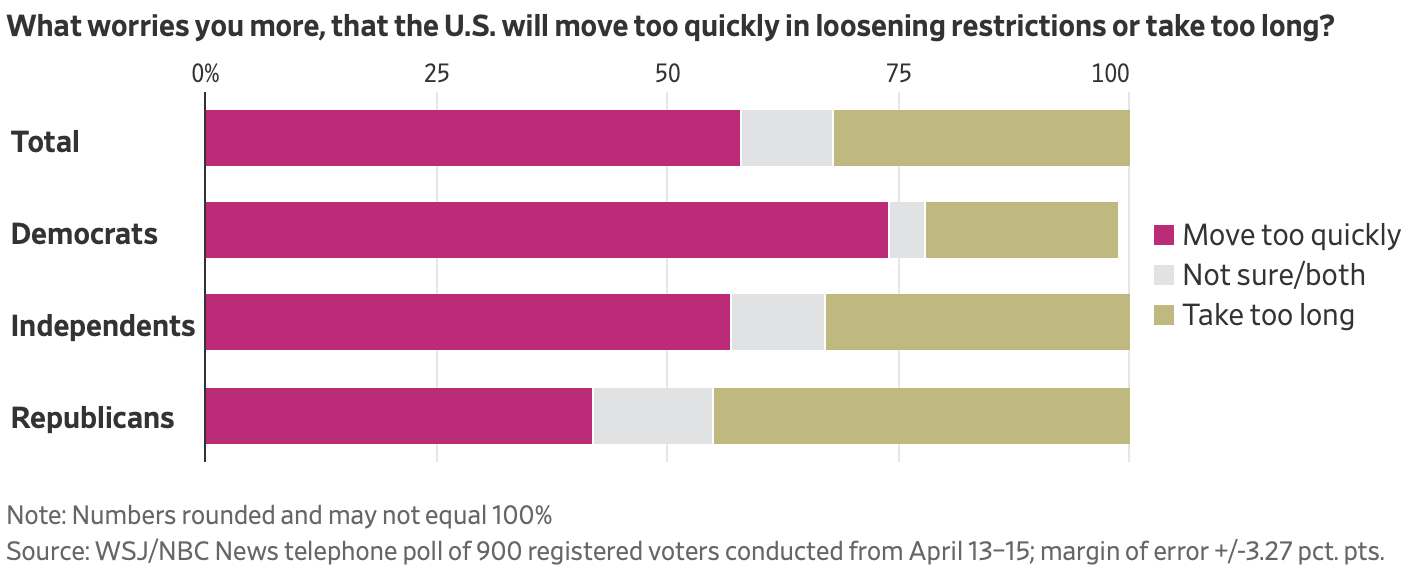
Saturday protest scenes:
Wisconsin
Texas
California
U.S. manufacturers shipped millions of dollars’ worth of face masks and other protective medical equipment to China in January and February with encouragement from the federal government. In those two months, the value of protective masks and related items exported from the United States to China grew more than 1,000 percent compared with the same time last year — from $1.4 million to about $17.6 million, which contain key PPE. (Washington Post)
Meanwhile, the federal government, scrambling to find N95 masks to protect health-care workers, has placed more than $110 million in mask orders at high prices with unproven vendors. (Wall Street Journal)
Boris Johnson missed five consecutive emergency meetings in the buildup to the coronavirus crisis, and the UK shipped protective equipment to China in February. The government faced intense pressure on Sunday over its initial response to the pandemic, as Labour accused Johnson of having been “missing in action” during the crucial weeks when the virus first arrived in the UK. (The Guardian)
Asian countries are growing more receptive to China’s coronavirus ‘face mask diplomacy.’ Faced with a backlash from the West over its handling of the early stages of the pandemic, Beijing has been quietly gaining ground in Asia, as teams of experts and donations of medical supplies have been largely welcomed by China’s neighbours. (South China Morning Post)
South Korea shows the world how to hold elections during a pandemic: First, polling places were disinfected and windows opened. Voters were instructed to stand at least three feet apart, with lines carefully marked on the floor. All voters had their temperature taken, and those with temperatures above 99.5 degrees Fahrenheit were taken from the regular line and directed to separate booths. Those who passed the temperature check sanitized their hands, put on plastic gloves and cast their ballots. Voters discarded their plastic gloves on the way out. Those being treated for the virus could mail their ballots, but they could also vote in person at special polling booths set up just for them — and at specific times. (Washington Post)
World Capitals:
Beijing’s embassy district is rated as China’s only high-risk zone. Of the 2,857 districts and counties monitored by a new government app, only Chaoyang, which is home to numerous embassies and an international airport, gets a red warning light. (South China Morning Post)
President Vladimir Putin said that Russian authorities had the coronavirus crisis under full control and that everything would work out with God’s help, even as the country on Sunday registered a record daily rise in cases of the new virus. (Reuters)
Beijing’s foreign affairs office in Hong Kong has hit back at governments and politicians who criticised the arrests of 15 pro-democracy figures for their roles in unlawful protests last year, saying their attempts to condone anti-China troublemakers were “completely wrong”. The spokesperson of the Commissioner’s Office of the Chinese Foreign Ministry in Hong Kong urged the governments of Britain and United States and other politicians to stop meddling in the city’s affairs, which he said were completely China’s internal matters. (South China Morning Post)
Cellphone data shows coronavirus kept churchgoers at home in every state on Easter (Washington Post):
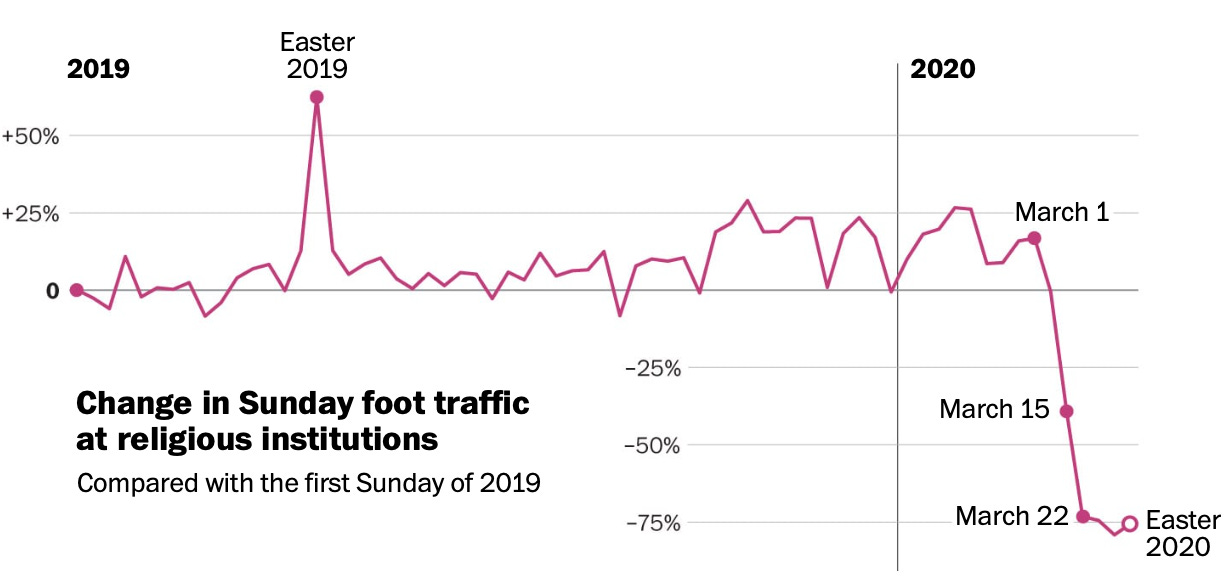
A federal judge blocked Kansas from limiting attendance at in-person religious worship services or activities to 10 people or fewer to check the spread of the coronavirus, signaling that he believes that it's likely that the policy violates religious freedom and free speech rights. (Stars & Stripes)
Law school students are caught in a ‘no man’s land’ as the coronavirus delays bar exams: Thousands of soon-to-be law school graduates across the U.S. are uncertain about their job status (Wall Street Journal)
Finance
Neiman Marcus Group is preparing to seek bankruptcy protection as soon as this week, becoming the first major U.S. department store operator to succumb to the economic fallout from the coronavirus outbreak, people familiar with the matter said. The debt-laden Dallas-based company has been left with few options after the pandemic forced it to temporarily shut all 43 of its Neiman Marcus locations, roughly two dozen Last Call stores and its two Bergdorf Goodman stores in New York. (Reuters)
Vietnam's textile sector is reeling from a sudden loss of orders that could be catastrophic to many garment makers. (Nikkei Asian Review)
U.S. banks are pushing the Federal Reserve to change the terms of a $600 billion lending program for small and medium-sized businesses, including reducing minimum loan sizes and allowing more flexibility on underlying reference rates. (Reuters)
Americans' evaluations of the economy have abruptly turned negative amid the coronavirus pandemic. Gallup's Economic Confidence Index is now -32, down from +22 in March. The 54-point drop is the largest one-month change in Gallup's trend dating back to 1992, and it comes on the heels of last month's 19-point drop, which had been one of the largest monthly declines to date. Just two months ago, economic confidence was the highest it had been in 20 years. (Gallup)
Credit Suisse Group AG compensated managers and employees with additional shares in the bank after the price dropped sharply during the depths of a market correction spurred by the coronavirus outbreak. For its annual bonus distribution, the Swiss bank shifted the calculation period for the share price forward to the first five consecutive trading days ending March 5, whereas in previous years it had used the last 10 days of February. That resulted in the distribution of 9 million additional shares to employees. (Bloomberg)
The federal government is on its way this year to spending nearly $4 trillion more than it collects in revenue, analysts say, a budget deficit roughly twice as large relative to the economy as in any year since 1945. Business borrowing also is setting records. Giant corporations such as ExxonMobil and Walgreens, which binged on debt over the past decade, now are exhausting their credit lines and tapping bondholders for even more cash. Millions of consumers, too, face sizable monthly bills for student loans and credit cards. The reliance on so much debt also will leave scars after the pandemic passes, economists say, making it difficult for policymakers to withdraw support and leaving the economy more vulnerable than before this crisis began. (Washington Post)
Second homeowners are accused of exploiting loophole to claim virus cash, as politicians say properties are being classed as vacation rentals to be eligible for grants. (Financial Times)
Many millennials are still reeling from the effects of the financial crisis, and others were only just beginning to get back on their feet before the pandemic shut down the U.S. economy last month. (Wall Street Journal)
Technology
Public cloud providers like Amazon Web Services, Microsoft Azure and Google Cloud have had to cope with a surge in demand in recent weeks as huge numbers of people work from home. But the cloud providers are also facing requests from many customers for financial relief, while others are cutting their cloud spending. So far, AWS has been the least willing to offer flexible terms on customer bills, according to numerous customers. That stands in contrast to Microsoft and Google which have shown some flexibility, partners say. (The Information)
Analysts forecast Amazon to report first-quarter revenues of $73bn (£58bn). That would be up nearly 22% on the same quarter last year, and works out as sales of $10,000 every second, day and night. (The Guardian)
The gaming industry has rapidly grown into one of the dominant entertainment industries on the planet, with video game revenue surpassing theatrical box office returns for the first time in 2018. Which is why it was no surprise when Amazon announced earlier this month that it’s developing its own video games, as well as a game streaming platform to play them on.
Currently code-named Project Tempo and set to release in May 2020, the new service would allow players to buy and run Amazon-developed games on Amazon-owned servers, and broadcast their play through the Amazon-owned Twitch service.
All the pieces are in place for Amazon to launch a powerful merchant system, an engaging gaming service, game studios, and even a platform to run them on, but the company has been exceedingly careful not to show its cards just yet. (One Zero)
Streaming services have suddenly become Hollywood studios’ new best friend. A wide array of film studios in recent weeks have tried to sell some of the movies they haven’t been able to show in theaters to streaming services such as Netflix, Amazon Prime Video and Hulu, according to multiple media executives. (The Information)
Amazing study:

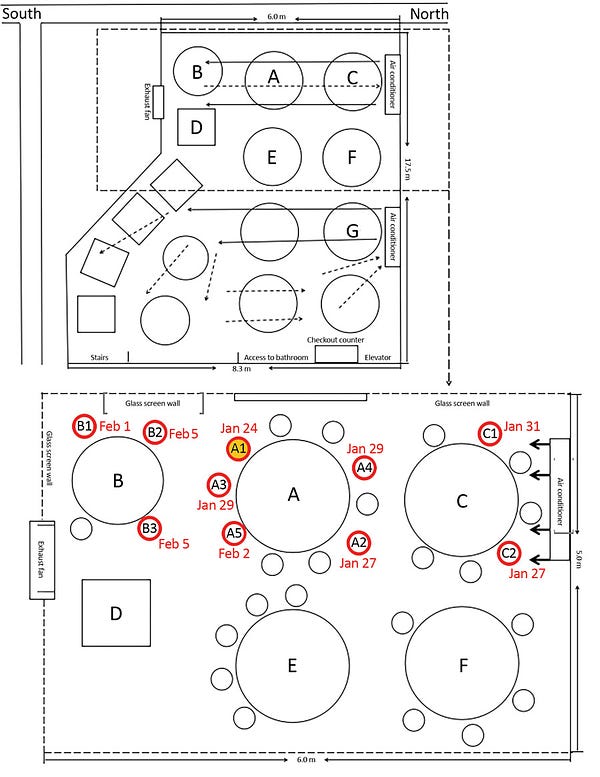
Smart Links
Today marks 25 years since the Oklahoma City bombing. (The Oklahoman)
Marc Andreessen: It’s time to build (A16Z)
New Zealand’s prime minister may be the most effective leader on the planet. (The Atlantic)
Why France has 4 times as many coronavirus deaths as Germany. (Vox)
Boom times for cannabis businesses as Californians, in a pandemic fog, isolate indoors. (Los Angeles Times)
How long has Puerto Rico been without full power? (NY Daily News)
Study: Five-star recruits are worth $650K to a college football program. (Washington Post)
U.S. streaming audience savors story that puts a human face on North Korea. (Washington Post)
The 1997 pitch to Michael Jordan that led to ESPN’s “The Last Dance” tonight. (ESPN)
Good News
Facebook & the Department of Veterans Affairs will give away video-calling devices to connect veterans. (Stars & Stripes)
Sometimes you get what you want:




